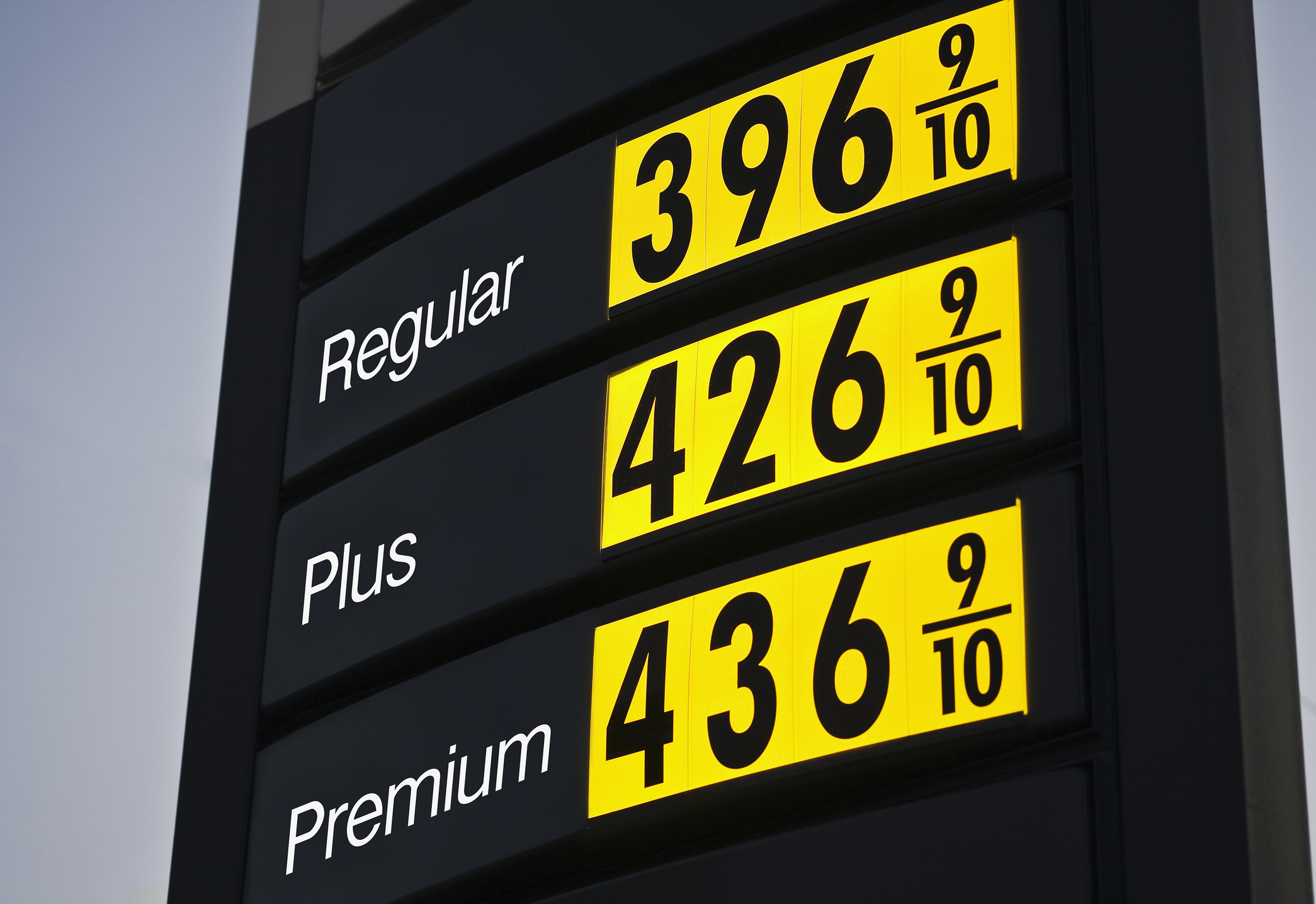The Woes of Extended Auto Warranties
Payouts over the life of an extended warranty typically fall short of the cost of the warranty.

Profit and prosper with the best of Kiplinger's advice on investing, taxes, retirement, personal finance and much more. Delivered daily. Enter your email in the box and click Sign Me Up.
You are now subscribed
Your newsletter sign-up was successful
Want to add more newsletters?

Delivered daily
Kiplinger Today
Profit and prosper with the best of Kiplinger's advice on investing, taxes, retirement, personal finance and much more delivered daily. Smart money moves start here.

Sent five days a week
Kiplinger A Step Ahead
Get practical help to make better financial decisions in your everyday life, from spending to savings on top deals.

Delivered daily
Kiplinger Closing Bell
Get today's biggest financial and investing headlines delivered to your inbox every day the U.S. stock market is open.

Sent twice a week
Kiplinger Adviser Intel
Financial pros across the country share best practices and fresh tactics to preserve and grow your wealth.

Delivered weekly
Kiplinger Tax Tips
Trim your federal and state tax bills with practical tax-planning and tax-cutting strategies.

Sent twice a week
Kiplinger Retirement Tips
Your twice-a-week guide to planning and enjoying a financially secure and richly rewarding retirement

Sent bimonthly.
Kiplinger Adviser Angle
Insights for advisers, wealth managers and other financial professionals.

Sent twice a week
Kiplinger Investing Weekly
Your twice-a-week roundup of promising stocks, funds, companies and industries you should consider, ones you should avoid, and why.

Sent weekly for six weeks
Kiplinger Invest for Retirement
Your step-by-step six-part series on how to invest for retirement, from devising a successful strategy to exactly which investments to choose.
It’s no surprise that extended warranties for autos rank high on consumer complaint lists. Contracts are riddled with exclusions, making it hard to tell what is covered and under what circumstances. If a covered part is damaged by a noncovered part, you may be on the hook for the whole bill. And if you haven’t followed the maintenance schedule, the warranty could be terminated.
See Our Kip Tips Column: How to Save on Auto Repairs
Payouts over the life of an extended warranty typically fall short of the cost of the warranty. In a 2014 survey by Consumer Reports, more than half of extended warranty purchasers never used their policies. Those who did, on average, spent hundreds more on the policy than they recouped. The median price paid was just over $1,200 (though less-reliable brands and luxury makes charged $1,500 to $2,200); the median savings on covered repairs for all brands was $840.
Despite the poor track record of extended warranties, one in three car buyers takes one home, says the Service Contract Industry Council. It’s easy to see why you’re likely to get the hard sell in the finance-and-insurance office. The difficulty of cashing in on a contract keeps the profit margin high (a 50% cut for the dealer is not unusual), and the added warranties keep customers coming back to the dealership for lucrative repairs after the manufacturer’s warranty has expired.
From just $107.88 $24.99 for Kiplinger Personal Finance
Become a smarter, better informed investor. Subscribe from just $107.88 $24.99, plus get up to 4 Special Issues

Sign up for Kiplinger’s Free Newsletters
Profit and prosper with the best of expert advice on investing, taxes, retirement, personal finance and more - straight to your e-mail.
Profit and prosper with the best of expert advice - straight to your e-mail.
Even if you don’t buy an extended warranty when you buy your new car, you may get another pitch when you bring your car in for routine maintenance or via an official-looking notice mailed to you just before the manufacturer’s warranty expires.
Buying peace of mind. One big reason people never use an extended warranty is that cars are more reliable than they’ve ever been, and manufacturers’ warranties are better, too. Bumper-to-bumper coverage lasts three or four years, and the powertrain is covered for five to 10 years. If your car is rated highly for reliability, it’s less likely you’ll find value in an extended warranty. In Consumer Reports’ survey, owners of traditionally reliable makes, such as Honda, Subaru and Toyota, were far less likely to have used extended warranties than buyers of brands that have had average or below-average reliability or luxury brands that tend to have high repair costs.
If you’re determined to buy an extended warranty, do some homework. Know what’s covered by any policy you’re considering as well as what your factory warranty covers. Some policies offer extended bumper-to-bumper coverage, some offer powertrain coverage, and some offer both. You may find extensions of the original warranty to 10 years or 100,000 miles, or even longer. Bumper-to-bumper coverage will probably give you the most bang for the buck. The engine and transmission are the most costly to repair, but they’re covered by the original powertrain warranty, and most repairs today aren’t related to the powertrain.
Also, warranty prices are negotiable. Get an offer from your dealer as well as other dealers in your area, and be prepared to haggle. Prices will jump after your original warranty expires.
The issuer of the warranty makes a difference. Steer clear of third-party sellers; you’ll be limited to certain shops or need authorization for repairs, and you will often have to pay out of pocket for the work done and then be reimbursed. “Automakers offer the safest harbor if peace of mind is your top priority,” says Kelsey Mays, consumer affairs editor for Cars.com. Prices are similar to third-party warranties, the dealer takes care of the paperwork for repairs, and you can get repairs done at any dealership that services your brand.
If you purchase a warranty and then change your mind, in most states, you have the right to cancel within 30 days of signing if you haven’t used the policy.
Profit and prosper with the best of Kiplinger's advice on investing, taxes, retirement, personal finance and much more. Delivered daily. Enter your email in the box and click Sign Me Up.

-
 The New Reality for Entertainment
The New Reality for EntertainmentThe Kiplinger Letter The entertainment industry is shifting as movie and TV companies face fierce competition, fight for attention and cope with artificial intelligence.
-
 Stocks Sink With Alphabet, Bitcoin: Stock Market Today
Stocks Sink With Alphabet, Bitcoin: Stock Market TodayA dismal round of jobs data did little to lift sentiment on Thursday.
-
 Betting on Super Bowl 2026? New IRS Tax Changes Could Cost You
Betting on Super Bowl 2026? New IRS Tax Changes Could Cost YouTaxable Income When Super Bowl LX hype fades, some fans may be surprised to learn that sports betting tax rules have shifted.
-
 10 Things You Should Know About Buying a Car Today, Even if You've Bought Before
10 Things You Should Know About Buying a Car Today, Even if You've Bought BeforeIf buying a car is on your to-do list, and it's been a while since you went shopping for a new one, this guide will help avoid any nasty shocks in the showroom.
-
 Get the Best Car Deal in Retirement: Here's the Trick
Get the Best Car Deal in Retirement: Here's the TrickPlanning on shopping for a new car this Labor Day weekend? Here’s how to haggle for a better price, even though you're retired.
-
 7 Gas-Saving Tips That Actually Work
7 Gas-Saving Tips That Actually WorkThese are gas-saving tips that will actually work for you and your car this year.
-
 Want to Lease an EV? The Tax Credit 'Loophole' for That Is Going Away Soon
Want to Lease an EV? The Tax Credit 'Loophole' for That Is Going Away SoonTax Credits If you are deciding whether to lease or buy an electric vehicle, here is what you need to know about how the EV lease tax credit works now that it will be eliminated under Trump's new tax law.
-
 Car Buying in a Topsy-Turvy Market
Car Buying in a Topsy-Turvy MarketYou need a new car? Good luck with that! What should you do? We've got some answers.
-
 Watch Out for Flood-Damaged Cars from Hurricane Ian
Watch Out for Flood-Damaged Cars from Hurricane IanBuying & Leasing a Car In the wake of Hurricane Ian, more flood-damaged cars may hit the market. Car prices may rise further because of increased demand as well.
-
 Car Buyers: The 3-Day Grace Period Is Just a Myth!
Car Buyers: The 3-Day Grace Period Is Just a Myth!Buying & Leasing a Car Many car buyers think they have three days after making a purchase to return a car. Here’s where they’re going wrong, and what they should do instead to get a decent used car.
-
 PODCAST: Car-Buying in an Inflated Market with Jenni Newman
PODCAST: Car-Buying in an Inflated Market with Jenni NewmanBuying & Leasing a Car With cars both scarce and expensive these days, what to do if you want – or need – a new ride? Car-buying strategist Jenni Newman of Cars.com shares some tips. Also, more on the magical 9% savings bond.